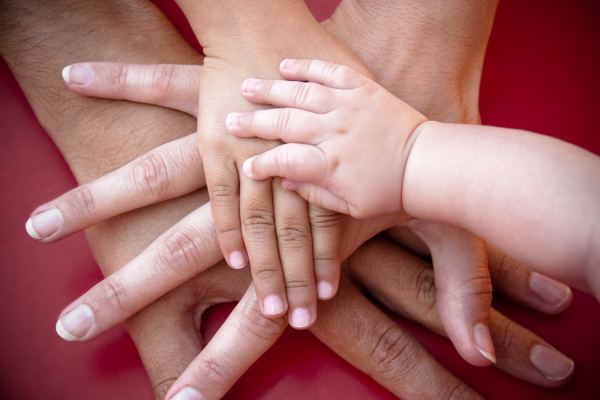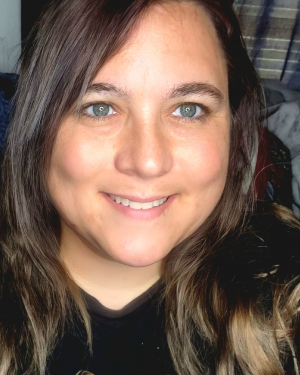Like many parents who enter the world of adoption, I started out thinking I was going to rescue kids and they would be thankful for it. Pictures of starving orphans in wartorn countries and kids that live around the corner, hidden and in squalor painted a view with clear victims and clear rescuers.
As with most things I have learned as I aged, I discovered these situations are far more nuanced than I initially thought. I mean, yes, there are absolutely little kids in orphanages. There are kids who are in foster care that came out of nightmare-inducing situations. The kids perceptions of those situations, however, make all the difference.
If you grow up in constant trauma and chaos, your brain begins to anticipate the chaos as normal. It isn’t until things are calm and quiet that the world seems overwhelming and wrong to some of these kids. Add in being removed from everything and everyone they loved and it starts feeling less like a rescue and more like something worse.
I’m not saying these kids shouldn’t be removed from the bad situations they are in. I am saying that as these kids grow, the way they see the world may end up being entirely different from the way their adoptive parents see it.
Case in point: when you search the hashtag #adoptee or #adopted on Tiktok or Instagram. Is the number of posts overwhelming to you? It was to me. Many will be happy pictures or reels. For every happy adoptee, there are likely equal numbers of adults or teens who are devastated by their adoption. Some of that is perspective. Heaven knows some adults resent their biological parents who grew up in fairly average homes. It’s not unheard of for a child’s needs to be unmet simply because a parent didn’t know there was a need.
But listening to the voices of adult adoptees has changed my perspective. It’s changed the way I talk about things like birth families and our family. I think a major point it hammered home was that talking about adoption openly is generally the best practice. There are several adult adoptees I follow who grew up thinking they were biological children and found out at 18 they were adopted. That is a hard age to be finding out the family you always thought of as “yours” turns out not to be what you thought. Add to that the fact adoption has been a punchline in media for decades. (For example, Thor proudly declaring Loki is his brother then when confronted with the things Loki has done that are bad, explaining it away with “well, he’s adopted.”) It doesn’t feel like a leap to say finding out you’re adopted at such a critical stage in life is devastating.
Some adult adoptees are discovering they have siblings that live with birth parents and they were the only child in a group of 5 that ended up being adopted. The feeling of isolation and betrayal some experience must be staggering and heart-rending.
The thing that has helped me (as an adoptive parent) the most, though, is listening to how these adult adoptees felt about their adoptive parents. Many report feeling like they were supposed to be different, more grateful, or better behaved without knowing why. It hurts knowing that these people were so completely misunderstood by parents who wanted to love them well. Also, I’ve been learning that sometimes a parent can do everything “right” and a kid still grows up and thinks they were wronged.
To an extent, knowing I will probably be vilified in their story later in life has helped me relax in the now. There is no perfect solution to parenting that promises well-adjusted happy adults. We are all trying to do our best with the information we have. Some of that information will turn out to be outdated and wrong. Some will be just right. The key seems to be making sure the kids know there is always room for discussion in our home.
I don’t shut down conversations about birth parents or estranged siblings. I talk about their adoption openly to them. I try to be as honest as is age-appropriate. I let them know their words have power. I try to discuss things if we see a problematic representation of adoption in the news or in a show. I try very hard to not ever make them feel as if they owe me anything because they are adopted.
Am I nailing it on the regular? No ma’am. I most certainly have as many “man I blew it” days as I have “I’m rocking this parenting gig.” I’m learning that’s…pretty normal actually. Adoptive parent or not we are all trying to figure out the best way to raise well-adjusted, happy, healthy kids. A huge part of that is knowing we will mess up and the best thing we can do when that happens is acknowledge it and apologize. In fact I’m learning that if I am sincere with my apologies and explain to my kid how I’ll try to do better next time I’m making more of an impact than if I just talked to her about how important it is to apologize if we’re wrong.
I think as adoptive parents it is our job to educate ourselves. Sometimes the cost of that education is feeling more conflicted about adoption as a whole. Sometimes the cost is having to change the way you’re living. Sometimes it’s just feeling uncomfortable and knowing that you’re doing your best. I don’t think it’s healthy to self-flagellate over past mistakes but I do think it’s important to take other’s perspectives into account.
Ultimately listening to adult adoptees has helped me see that there is hope for my kids if I support them however I can, and don’t try so hard to control things outside of my control. I can’t fix their history, but I can help guide their future.

